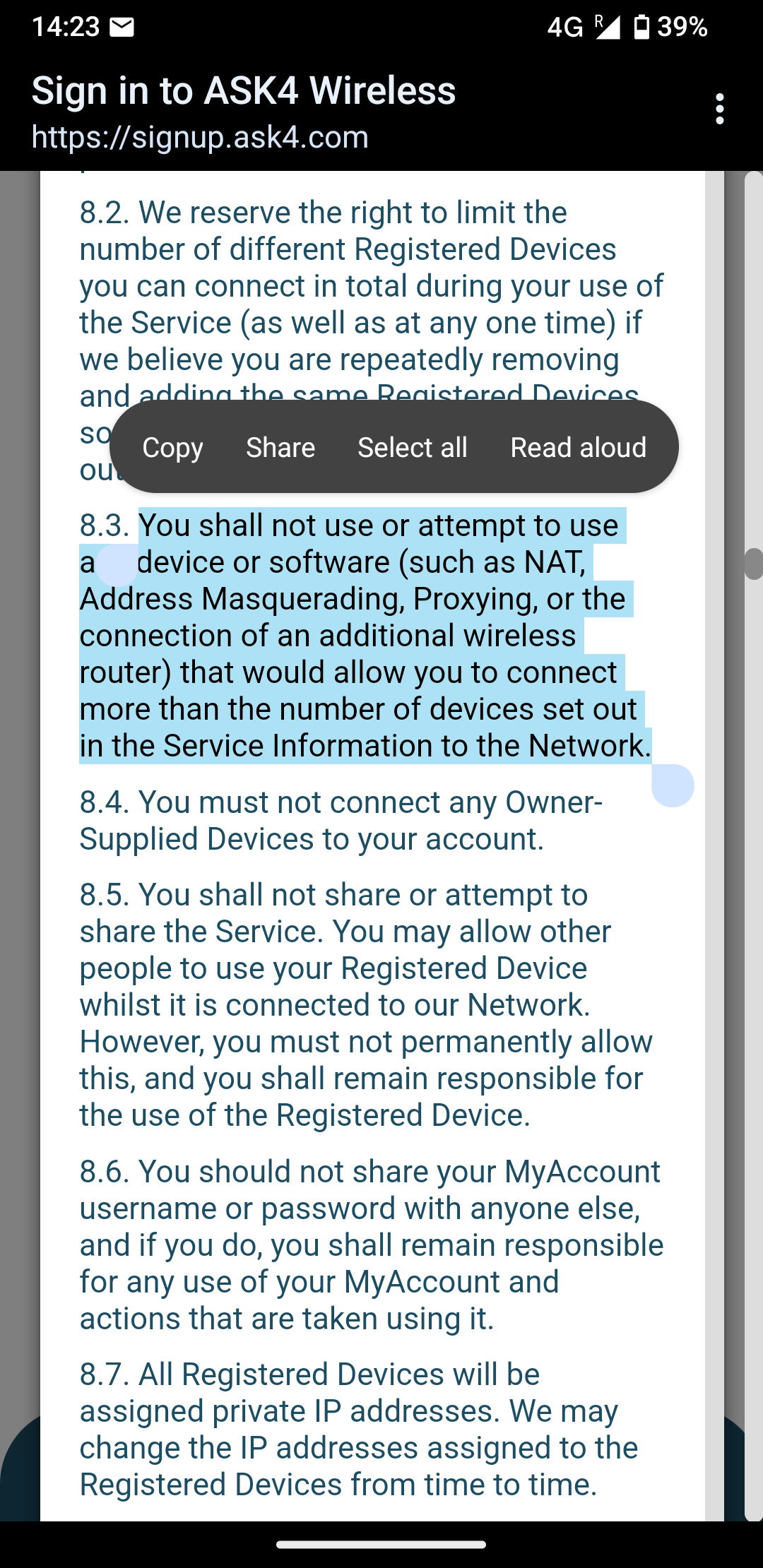While degoogling is accessible right now, what worries me is that all of these projects are 100% dependent on Google's whims because they use Android as the upstream. Same reason why I don't use Chromium browsers: yes, they can patch over things, but they can't fight the direction of the upstream project and they are powerless if the upstream stops publishing commits / source, like Google seems to be moving toward. Additionally, what "the big distros" aka stock ROMs do to prevent FOSS apps being installed means a much much smaller potential userbase for them. I develop an Android app, and (while I don't have analytics) I don't find it unlikely that at least half my users are on stock roms that would lose access to my app with this policy. It's much less motivating to develop something when I know less people will benefit, and especially knowing I'm supporting only custom roms that are 100% beholden to Google. Degoogling is a good first step. I've been on Lineage for many years now. But I believe that the step that will truly make us independent is moving to Linux phones.
Very cool, but this is old news from 2024. I wonder how they're doing now.
Ah yes my favorite Country, the European Union.
I (maybe) ended distrohopping last year when I gave NixOS a shot. I can't recommend it for beginners but once you understand generally how things work on Linux (and have an interest in programming) it's a superpower to be able to define your entire setup as a single git repository. If something ever breaks, I can reboot into an older commit and keep using my computer, or branch off in a different direction... I've only scratched the surface of NixOS and yet I can already make a live USB containing my setup with a single command, or deploy it ("infect") to another machine and manage e.g my work desktop and my personal laptop sharing most settings. Also it taught me about Nix (the package manager, which also runs on any distro and macOS independent of NixOS) which I now use to set up perfect development environments for each of my projects... if I set up dependencies once (as a flake.nix shell), it'll work forever and anywhere.
At my studio we maintain a native Linux version with a custom game engine, and it indeed takes a lot of time. I don't consider Proton a viable option as we lost the ability to integrate with Linux-specific stuff such as Wayland APIs or better input, but I can definitely see the appeal of switching to Proton... if your team uses Windows. If you have some developers on Linux, you naturally get a Linux build (if using cross platform APIs ofc) and it's actually faster to cross-compile a Windows build every once in a while (skip the slow ntfs I/O) and ship that. But it requires getting more of the team on Linux :)
I did a bachelor of videogame programming in Belgium 99% on Linux (minus exams), but it was definitely a huge struggle. All the courses and assignments were Windows-only, and 90%-ish required Visual Studio (non-Code) and Windows-only libraries like DirectX or Win32. I got by writing my own tooling to auto-convert these to CMake projects and convincing each teacher to allow me to hand in CMake projects. I wrote SDL backends for most of the win32 assignments, falling back on clang's excellent cross-compiling for stuff that requires e.g Windows.h. I wrote a blog post about this: https://blog.allpurposem.at/adventures-cross-compiling-a-windows-game-engine And using e.g DirectX natively on Linux, easier than expected: https://blog.allpurposem.at/directx
I also wrote a small wiki on my general experience + a summary of courses and main problems encountered... Windows was non-negotiable during exams: https://dae-linux.allpurposem.at/ I maintain tools, converted assignments, and information on this for future students who want to attempt something like me, but it's hard to recommend the Linux challenge if you are totally new to programming!
Hope some of this is helpful!
Awesome! I hope he will help share this with more folks, the friends who I've talked into finally giving modern non-Ubuntu Linux a shot love it, but there's a lot of work to get over the damaged image created by the countless "linux user installing a browser" memes. I'm sure someone with his reach can help though :)
The amount of folks I see use Opera GX "gaming browser" because some influencer said so...
This article reads like satire... it's sentence after sentence of "and I did it using one of the [best office chairs]" which is a link to some review by themselves. Every bit mentioned had an affiliate link and there wasn't an actual review of what the experience (software, setup, visual fidelity) is like??
I want to move my whole server to NixOS. It's gotten to the point where I have no idea where all the Ubuntu config files went, and handling half of it via Docker vs baremetal. I hope this will allow me to set up proper backups as well, and maybe get better at Nix! I started a few days ago using the VM feature, but it's tricky to work on for now, perhaps I haven't found the right workflow.
Yeah, the interference argument is fair, but I think this is also the ISP (totally separate third party) trying to protect the paid plans they sell for connecting more than one device...

I'm going to look into adding this to my app https://git.allpurposem.at/mat/Sudoku Indeed I do not agree with this, so it will become unavailable when the terms go into effect. I will look into making it available for Linux Mobile.